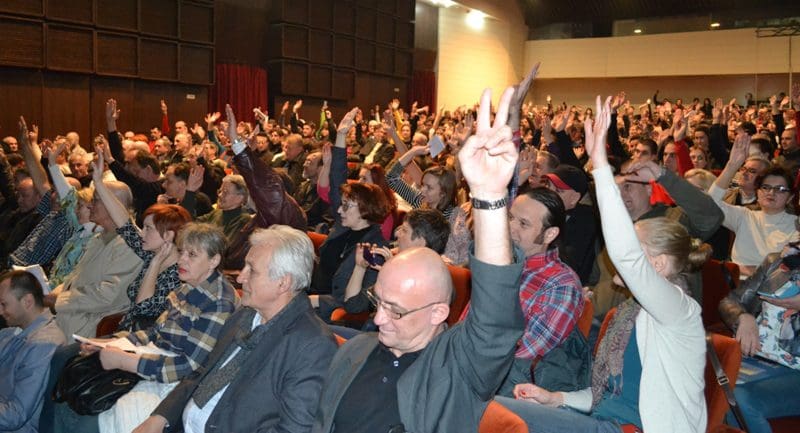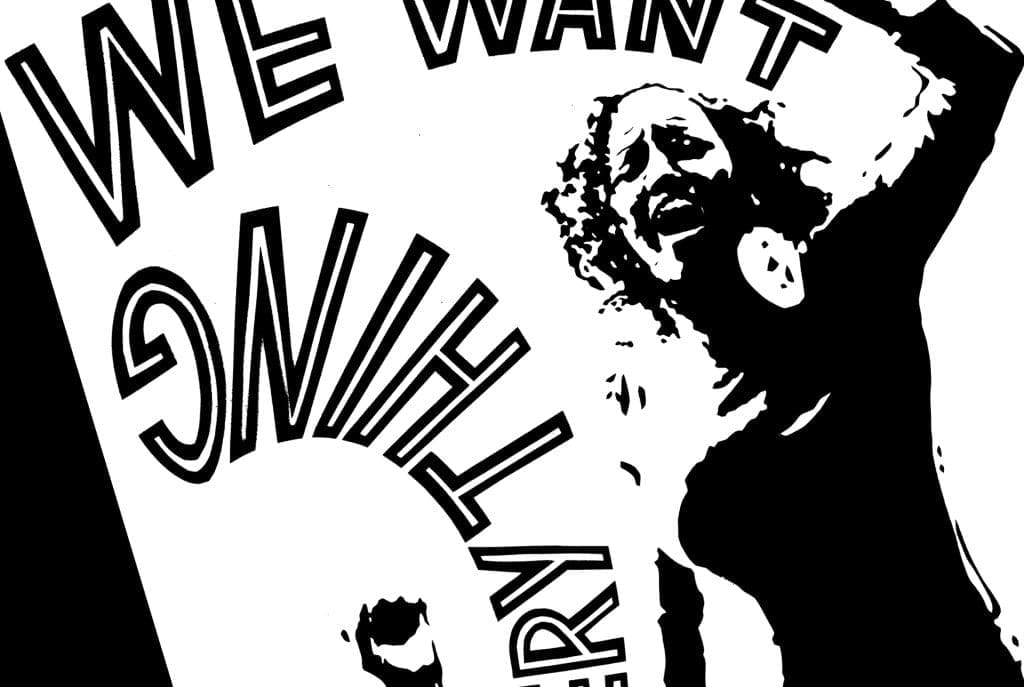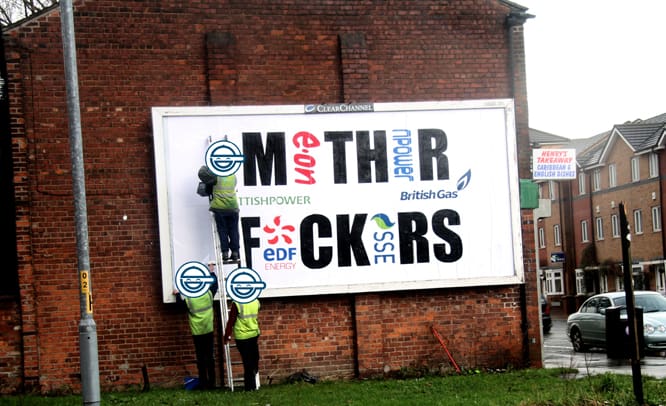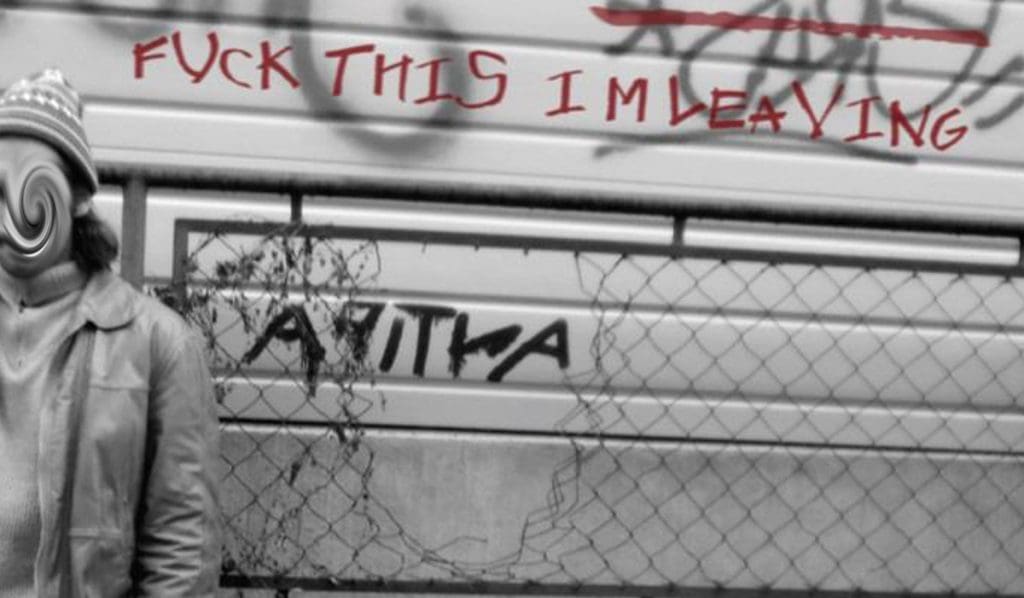Transcribed from This is Hell! Radio’s 22 March 2014 episode and printed with permission. Listen to the full interview:
“It’s misleading for the international community to say the citizens of Bosnia need to take ownership of their own issues, but then when they take that phrase literally, say, ‘oh, that’s not what we had in mind.’”
Chuck Mertz: We are speaking with Edin Hajdarpašić. He teaches history at Loyola University in Chicago; he is the author of the forthcoming book entitled Whose is Bosnia? Political Imagination and Nation Formation in the Modern Balkans, and wrote an Al Jazeera article recently on what’s going on in Bosnia right now.
You write, “in early February thousands of protesters stormed government buildings across Bosnia. The massive outpouring of anger in Sarajevo and other Bosnian cities, followed by the creation of plenums—or citizen assemblies—briefly attracted worldwide attention. While major newspapers scrambled to find reporters on the scene, editorials by Slavoj Žižek and open letters by thinkers like Tariq Ali expressed enthusiastic support for the Bosnian demonstrations. Amid these debates, the general consensus—especially in the mainstream media and government cabinets in Europe and America—is a familiar one when it comes to protests in troubled countries, be it Bosnia or Ukraine, Greece or Tunisia: endorsement of citizens’ basic democratic rights coupled with a condemnation of corrupt local politicians.”
George Ciccariello-Maher has made the point that situations are different and you can’t simply have a knee-jerk reaction to every uprising. I had activists on Twitter attacking me, comparing the Arab Spring to what happened in Ukraine. Is it constructive to compare and contrast these uprisings?
Edin Hajdarpašić: That’s a great question. George Ciccariello-Maher also made the point in his article that we live in a time of protest; I think there is something about the current moment. We are seeing massive political movements in places like Turkey, Egypt, Ukraine, Bosnia, Bulgaria, whether they are from the right or the left, and I don’t think it’s helpful to put them in the same categories—particularly categories that observers in Western Europe or in the United States might be familiar with: liberal or conservative; the good guys, the bad guys. I think that is not helpful. That is extremely simplistic. The stories are so pre-scripted.
The part that really concerns me is that we have a fixed idea of what democratic change should look like: you vote in elections, you get some progressive leaders, they enact laws. Nobody envisions citizens taking the time and energy aside to form their own assemblies, to form their own participatory direct-democracy bodies. Citizens’ empowerment in places like Bosnia unnerves people. They don’t know exactly where to group these kinds of things.
On the one hand, it’s seen as positive. On the other hand it’s a little bit disturbing, and I think the reaction of the international community in Bosnia was telling. Initially, when the protests broke out and the government buildings and some party headquarters were burned by the demonstrators, the immediate reaction was, “we need EU troops in here.”
But this moment fizzled out, and what’s remained are peaceful but steady protests in the streets, and these citizen assemblies called plenums. Then the reaction from the same people who called for EU troops (the Office of the High Representative in Bosnia, headed by Valentin Inzko) was, “this is wonderful! We have been waiting for a moment like this!”
But they still don’t meet with them. When EU officials like Baroness Catharine Ashton arrive to Sarajevo, they meet with the same old party politicians who are being evicted from office by the protesters, but they do not have the time to meet with representatives of the citizen assemblies. I think this is an egregious reaction.
CM: So democracy is okay in the halls of power; they just don’t want to see democracy enacted on the streets. What would happen if Bosnia sent in the police, sent in the troops to break up these protests?
EH: In a way, that is starting to happen. Certainly nothing that can be compared to Ukraine. In Bosnia the reaction of the police, initially, was largely predictable. There was a lot of police brutality against demonstrators. But the violent protests were dispelled—they really lasted only for a couple of days—and the police overreaction continues. The media overreaction continues.
I’ll give you just a couple of examples. In the town of Mostar, which has been ethnically divided since the end of the war, a labor organizer who was a key participant and an organizer of plenum meetings was attacked and ended up in the hospital. Not by the police—who knows where these pressures come from.
In the same town, citizens heading to citizen assembly meetings are interrupted by the police: stopped on the streets, asked for their ID cards, told to go home. There is low-intensity pressure—particularly against the more exposed people who have been at the forefront of the meetings—to stay home and not make waves.
I don’t know what would happen if the police reaction were even more violent or if the EU sent in troops. I think that is something the EU itself would not like to see. It simply looks bad on TV. They would prefer the protesters just simply go home.
CM: Why did these protests happen now? One thing we hear is that the common denominator for all protests is the economy. Almost as if commentators are saying, “people don’t really care about rights. They don’t care about democracy. All they really care about is their wallet.” Is this only about the bottom line? And why don’t these protesters believe that they can make these changes at the ballot box? Why did they have to go to the street?
EH: I think it’s difficult to explain in a concise way why now. The issues are certainly economic, many of them. But there are also deeper issues; in many cases citizens of Bosnia, regardless of ethnic background, feel frustration and rage toward the entrenched political structures.
This goes back to the Dayton Peace Accords, which established a very elaborate, onerous structure. I’ll just outline it very briefly for the sake of context. At the end of the war, which had been very brutal and had riven the country apart, the ethnic politicians who had led the countries into war signed a peace agreement in Dayton that essentially created two political entities. The Republika Srpska, or the Bosnian Serb Republic, on the one hand—which, as its name implies, is overwhelmingly populated by Serbs—and the so-called Federation on the other side, which is overwhelmingly composed of Bosnian Muslim or Bosniak citizens, as wells as Croats.
So at every level of government there is a hugely bloated ethnic bureaucracy that has been entrenched in Bosnia for decades now. It’s really the same parties being re-elected over and over, by stirring up ethnic fears. And these same politicians who entered into the Dayton structures after 1995 have worked out an incredibly enriching system for themselves.
I hear people tell the protesters in the citizen assemblies: “your demands about privatization, or refusal of IMF loans, are unrealistic.” You know what’s unrealistic? Bosnia’s postwar history. Party politicians are living the impossible dream! They pay themselves the highest wages for parliamentary representatives in Europe! Six times the average salary. In places like Bulgaria, for the sake of a Balkan comparison, it’s two and a half to three times the average salary. In Bosnia, it is six times the average salary.
“In Bosnia, there are 85 multimillionaires with a combined worth of $9 billion. The country’s gross domestic product is about $18 billion.”
To answer your question: yes, it is about the economy, but it’s also a deep-seated frustration and rage against the political institutions and against the politicians. Which is why the first demand of all the plenum citizens’ assembly meetings has been, “resign.”
CM: There was an article in the Guardian last week about how Ukraine should be careful what it wishes for, as far as thinking that the EU is going to be the end-all be-all. When you look at what’s happened in other European countries, a lot of corruption comes with the EU. But a lot of corruption comes with Russian influence. It seems like the choice there is between corruption and corruption. Is it the same situation in Bosnia?
EH: In Bosnia it is not the same situation, simply because of the Dayton Peace Accords and the heavy international administration that is already present in the country. NATO, the United States, the EU, and the OSCE have established the ground rules from the get-go. Initially this meant making sure that war criminals—at least the most well-known ones—are not running in elections, and that the country has basic functioning utilities. We’re not talking high-level functioning: ID cards, license plates. Very basic structures were enabled by the international community.
But since the early 2000s they have been saying, “look, the period of international intervention is over. Bosnia citizens need to take ownership of their own issues.” This phrase has been beaten to death by the OHR. Citizens of Bosnia are “too apathetic;” they need to take ownership of their own issues, elect responsible politicians who are going to provide a functional government that’s going to lead them to a more secure membership within the European Union. When that doesn’t happen, it is almost as if the citizens are blamed for failing to elect anybody but ethnocratic entrenched politicians.
I think it’s misleading for the international community to say the citizens of Bosnia need to take ownership of their own issues, but then when they take that phrase literally, say, “oh, that’s not what we had in mind.”
CM: The real thing that they have in mind is, elect people who are friendly to our policies—IMF, World Bank, European Central Bank policies. That’s what they’re actually saying, correct?
EH: Beyond that. The ethnocratic politicians are more than friendly to IMF loans. They know how to get them; they know how to exploit them for their own personal gain. Bosnian debt has really multiplied in the last ten years due to IMF loans. It is an incredible development of debt, often through shady privatization schemes in which factories and resources that used to be held by the state are sold off.
These resources are being sold off, and then when you want to develop, you go to the IMF and say, “we would like to redevelop Bosnia’s mining industry, give us a loan.” But this loan never really materializes for the workers. Production is never started. Workers are sitting at home unemployed, they are not receiving wages. It all somehow ends up in the politicians’ pockets, or in the nouveau riche’s pockets.
And it doesn’t even leave the country. Last year, Wealth-X—which is a database of ultra-affluent individuals (that’s their own phrase), essentially a research think-tank—provided a country-by-country breakdown of wealth held in private individuals’ hands. In Bosnia, they found that there are 85 multimillionaires with a total combined worth of $9 billion. The country’s gross domestic product is about $18 billion.
CM: 85 people have half the money.
EH: Yes.
CM: So what explains these protests in Bosnia not becoming violent, not being taken over by a more militant wing and turning into a situation like Ukraine or Syria?
EH: Really good question. To put things in context you have to look back not only to the post-war history but also to instances of past protests in Bosnia. In the past five years at the very least, citizens have marked their dissatisfaction and frustration and rage against the system.
You begin to see patterns. You begin to see workers protesting, organizing their own sit-ins in factories. In the Dita factory, for example, they brought tents into the factory yards and slept there; they occupied the factory. This never gets on the news. But it has been happening since 2009 at the very least.
Last year, in June of 2013, there were protests that also did not make the news—the so-called Bosnian Baby-lution, which concerned a typical case of dysfunctional ethnocracy in Bosnia. Differing factions—the Serbian parties on one side and Bosnian Muslim or Bosniak parties on the other, with Croats in the mix as well—disagreed over a law that assigned personal ID numbers to citizens of Bosnia, something like a Social Security number. You would need this to get a passport. The dispute, over whether ethnic entities could issue their own numbers independently, led to the constitutional court suspending the law until the matter was resolved.
So between February and June of 2013, no baby born in Bosnia could receive a personal ID number, and therefore could not receive a passport. Now, think about the consequences of this. Ill babies could not leave the country for proper medical treatment.
One such case became extremely well-known. A baby named Belmina Ibrišević, who was severely ill, had to leave to Germany to receive care which was not available in Bosnia. She could not receive a passport. She could not leave the country until it was too late. She died in Belgrade in late June. At that point, quite spontaneously, a group of citizens blocked the exits out of the Bosnian parliament while it was in session. Thousands of people joined them, and would not let the parliamentarians out of the building until they passed a law. The police essentially escorted them out at night.
The protests continued; people have been making strides and efforts. They have been disenchanted. They have been uniting across ethnic lines to mobilize. In a way they’ve laid the groundwork for February 2014 and the citizens’ assemblies.
“Death to Nationalism has been a slogan of the Sarajevo movements, the movements in Mostar. This is an incredibly uplifting and positive development in towns that have been ethnically divided since the war. And it speaks directly against this absurd notion of ethnic hatreds.”
Now that this kind of grassroots organizing has started happening, it is really in the hands of the citizens of Bosnia. It is really up to them to decide what their demands are.
I would like to give you a list of cities in which these citizens’ assemblies are happening: Brčko, Bugojno, Cazin, Gornji Vakuf, Fojnica, Goražde, Gračanica, Konjic, Mostar, Orašje, Sarajevo, Tešanj, Travnik, Tuzla, Zenica.
Once you realize that in all of these towns there are citizens meeting, it becomes very difficult to appropriate. You might plant somebody in one town but so far it’s been impossible for politicians to re-appropriate them. Which is not to say that they haven’t been mightily, mightily trying to discredit them and appropriate them for their own purposes.
CM: One last question for you, and it’s what we call the Question from Hell: the question we hate to ask, you might hate to answer, or our audience is going to hate the response. You keep talking about how the ethnocratic divides within Bosnia-Herzegovina have been problematic, in that the government is not able to function as well, the people aren’t able to function as well, democracy is not able to function as well. But we’re told—just like we were told with Iraq, Sunnis and Shiites have been at each others’ necks for thousands of years—we all know that Bosnians hate Montenegrins hate Croats hate Serbs. It’s in your blood, Edin, it’s in your blood!
So why is it that we in the West believe these ethnicities need to be separated, and then at the same time these ethnicities being separated is making it a dysfunctional democracy in Bosnia-Herzegovina?
EH: This is the question that every historian, sociologist, and political scientist of the Balkans gets; it is the question that keeps repeating itself. This week, Robert D. Kaplan wrote another article saying that America is the only force capable of providing peace in the world—it goes in predictable directions, across North Africa, Ukraine, etcetera.
Now, Robert D. Kaplan was perhaps the best-known—though certainly not the only—author to argue for this thesis of ancient ethnic hatreds in the Balkans. His book was called Balkan Ghosts. Policy-makers debated it in the U.S. Congress. He basically says, “there’s nothing to do about this war in Bosnia.” Exactly like you said. “These people—Muslims, Croats, Serbs—have hated each other for thousands of years, and it’s simply impossible to do anything about it. Let’s just stay out.”
Not only is this a factually bankrupt and worthless view, but it’s also incredibly politically dangerous. It advocates a sense of disempowerment. It castigates people as simply actors of some kind of primordial forces—your blood is stronger than any rational decision that your mind can make; you’re somehow driven or born with this.
But one of the hopeful sides of this protest movement in Bosnia is that people have been making very concrete political demands that do not have anything to do with ethnicity. One of the banners said, “We’re hungry,” in three languages: Bosnian, Serbian, and Croatian. Which is the same language anyway. But the point is, the issues—particularly economic issues, issues of dysfunctional state institutions—concern everyone, regardless of ethnicity.
“Death to nationalism” has been a slogan of the Sarajevo movements, the movements in Mostar. This is an incredibly uplifting and positive development in towns that have been ethnically divided since the war. And it speaks directly against this absurd notion of ethnic hatreds.
CM: It’s been an honor and pleasure to have you on. When your book comes out, come back up here to the studio; we’ll definitely have you back on.
EH: Oh, there’ll be plenty to talk about, with 1914 and 2014.
CM: Exactly! June 2014. Are you going to party like it’s June 1914, or what?
EH: I hesitate to think of what those parties are going to be like. A lot of rakia.
Image: Taking a vote at the Tuzla plenum. Source: Bosnia-Herzegovina Protest Files





